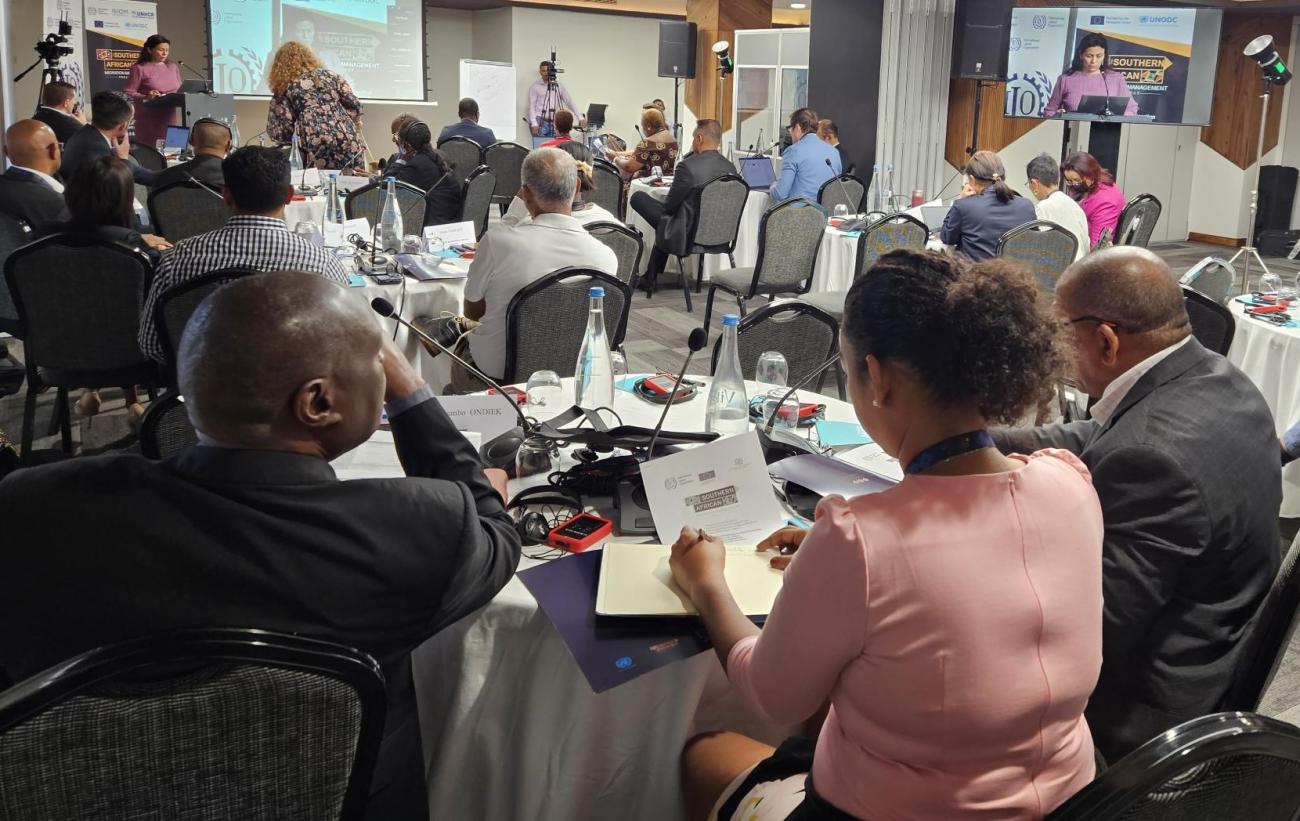Traditionally, in the Indian Ocean labour migration goverance has been viewed as the exclusive responsibility of member states.
Private Sector's Call for Concrete Solutions
However, the dynamics are evolving with employers' representatives advocating for practical, real-time solutions to address pressing issues, ranging from labour shortages across skill levels to the mismatch in skills and the transfer of skills. They emphasize the importance of rapid identification of labour market needs through comprehensive labour migration statistics. Moreover, employers demand evidence-based, transparent, and efficient labour migration policies at the national level. This includes accelerating and simplifying work and residence permit processes and refining systems for the recognition of qualifications.
Southern Africa Migration Management Project's (SAMM) Initiatives**
The SAMM project has been at the forefront of fostering dialogue and collaboration between employers and policymakers. In 2022, SAMM organized two significant workshops focusing on labour migration governance in the Southern African Development Community (SADC) and the Indian Ocean region. These workshops aimed to raise awareness among employers and gather their perspectives on labour migration governance.
The first workshop, held in Johannesburg in partnership with the International Organisation of Employers (IOE), addressed business perspectives on labour migration governance in Southern Africa. The second workshop, in collaboration with IOE Policy Working Group on Migration, delved into the dialogue between employers and policymakers in the Indian Ocean region, specifically involving representatives from Comoros, Madagascar, Mauritius, and Seychelles.
Challenges and Recommendations
During the workshops organized during the first week of October 2023, employers as well as the Government and Workers’ representatives highlighted challenges related to climate change, youth unemployment, and labour shortages in key sectors like construction, tourism, agriculture, fisheries, and ICT of the Indian Ocean region. Additionally, they pointed out the difficulties in aligning education with the job market and the reluctance of the national workforce to engage in low-skilled, low-paid jobs.
The SAMM project's core initiative includes developing a Code of Conduct on the Fair and Ethical Recruitment of Migrant Workers in the Indian Ocean region and its self-assessment tool, which were endorsed by the participants. This Code, discussed during the workshops, emphasizes transparency, accountability, and proactivity in labour migration practices.
Key Recommendations and Framework Development
The initial recommendations from the employers and Private sector include the creation of a Fair and Ethical Recruitment Code of Conduct, support for a Regional Free Movement of Persons Agreement, development of regional labour market information systems, and enhanced social dialogue involving social partners in skills recognition mechanisms. Hence, the SAMM project has been actively involved through the first and second workshops in October 2023 to presenting a Fair and Ethical Recruitment Code of Conduct as well as its Self-Assessment tool for the Indian Ocean region. Moreover, skills mobility frameworks were developed at national and regional level, emphasizing the importance of social dialogue, capacity-building, and strengthening labour migration governance in the region. The framework also explores bilateral labour migration agreements and temporary migration programs to address immediate skills gaps and promote skills transfer. Both regional documents were endorsed at country and regional level with a few minor edits.
Conclusion
The evolving landscape of labour migration governance in the Indian Ocean region reflects a collaborative effort between the private sector, policymakers, and international organizations. By prioritizing ethical recruitment, skills mobility, and fostering regional cooperation, the region aims to create a fair and sustainable labour migration framework that benefits both countries of origin and destination, employers, recruiting agencies, and migrant workers alike. Through ongoing initiatives under SAMM, the Indian Ocean region is paving the way for responsible and inclusive labour migration practices.
Find out more here.
************************************************************************
**The SAMM Project is implemented by the ILO in collaboration with the International Organisation for Migration (IOM), the United Nations Office on Drugs and Crime (UNODC) and the United Nations High Commissioner for Refugees (UNHCR).





